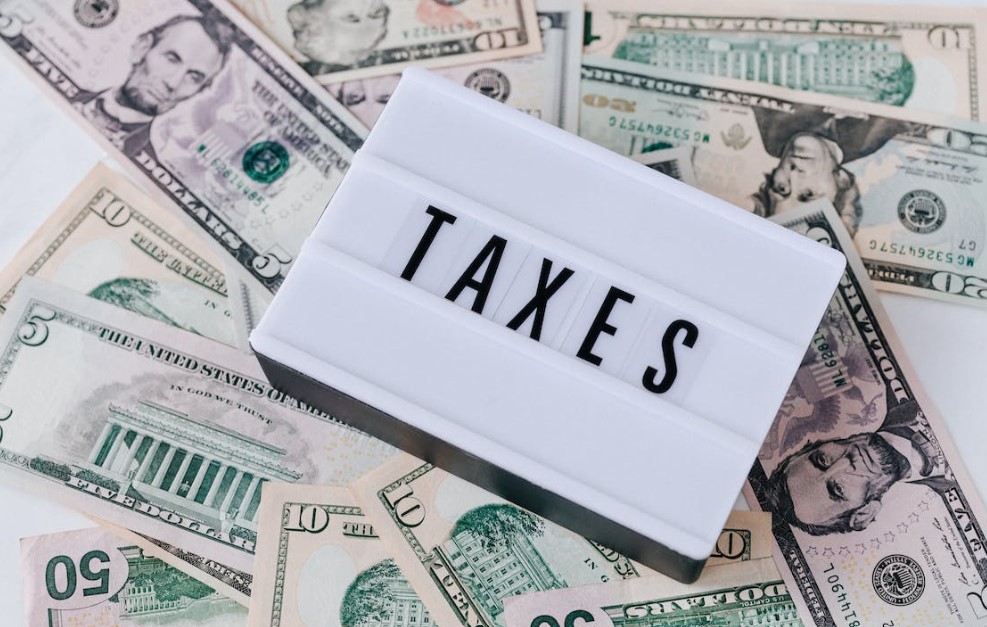If you’re an investor, you’re probably familiar with the tax on capital gains. Whether you’re a taxpayer or a financial advisor, it’s important to understand how it works and what you need to do to take advantage of it. In this article, we’ll outline the basics of the tax on capital gains, including when and how it’s applied, and how to minimize your liability. So whether you’re a first-time investor or an experienced one, read on to learn everything you need to know about the tax on capital gains.
What Is the Capital Gains Tax?

The profit that an investor obtains when an asset is sold is subject to capital gains tax. The tax obligation for the year in which the investment is sold is owed. The amount of capital gains tax that an individual or business must pay depends on a few factors, including the type of asset, how long the asset has been owned, and the rate at which it has been sold.
Understanding the Tax on Capital Gains

The capital gains, or profits, from the sale of stock shares or any other taxable investment assets, are referred to as “realized” when they are sold. The tax doesn’t apply to unsold investments or “unrealized capital gains.” Stock shares will not face taxes until they are transferred. The majority of people pay a higher rate on their income than on any long-term capital gains. After that, the tax on the profit will be reduced since they have a financial incentive to keep investments for at least a year.
How Much Tax is There on Capital Gains?

There is a 10% capital gains tax rate for most people in the UK who have made a profit from their investments over the past year. This applies to both individuals and businesses. If your income is below £50,270 (which is the equivalent of around $75,000), you will not have to pay any capital gains tax at all.
On the other hand, if your income is above £50,270 you will have to pay an 18% capital gains tax on everything that you have earned over this limit. This includes any profits made from selling your residential property or shares in a company.
How Can You Avoid Capital Gains Taxes?
1. Use CGT allowance
You may be able to reduce or avoid capital gains tax by taking advantage of the CGT allowance. This allows you to exclude from taxable income any gain made on the sale of a property that was originally bought with money invested in approved investments, such as an ISA or pension scheme. You must itemize your deductions if you wish to take advantage of this allowance – consult a financial adviser for more information.
2. Offset losses against gains
If you have made a loss on the sale of assets, you can offset this against any subsequent gain before calculating your taxable income. This means that you will only pay tax on the excess of the loss over your gain, rather than on the entire amount of the sale.
3. Gift assets to your spouse
You may be able to reduce or avoid capital gains tax by gifting assets to your spouse without incurring any tax liability yourself. This allows you both to benefit from any increase in the value of the asset, without having to pay taxes on this rise separately.
4. Reduce taxable income
You can reduce your taxable income by using certain expenses – such as mortgage interest and childcare costs – as deductions against other income before calculating your taxable income. This allows you to reduce the amount of taxable income that you are liable for, and may result in a lower tax obligation overall.
5. Buying and selling within the family
If you buy or sell assets within your family – such as shares in a company owned by your spouse, children, or parents – then any capital gains made on these transactions will be exempt from tax. This means that you won’t have to pay any extra money in taxes on this profit, which can save you a considerable amount of cash flow.
6. Contribute to pension
You can make contributions to a pension scheme on your behalf, which will reduce the tax amount of passive income that you receive. This can help to lower your tax liability overall, and may also increase the value of your retirement savings.
7. Make charity donations
You may be able to reduce or avoid capital gains tax by donating assets to charity. This allows you to give away money that would otherwise have been subject to tax, which can help improve the lives of others in the long run.
8. Spread gains over Tax years
If you make capital gains in one year and then sell the asset within a shorter time frame, it may be worth splitting these gains between the tax years that they were made. This way, you can avoid having to pay extra taxes on this profit at once, and will instead have to pay them over a longer period of time.
9. Availing of ISA allowance
If you are planning to invest money in a tax-free account, such as an Individual Savings Account (ISA), then it may be advantageous to make regular contributions of Capital Gains Tax (CGT) free of charge. Doing this will reduce the overall amount that you have to pay in taxes on your profits, which can further improve your financial situation.
10. Invest in small companies
Some people find that making investments in smaller companies, rather than larger ones, can be more advantageous in terms of tax savings. This is because it may be easier for these businesses to negotiate lower taxes rates with the government, due to their small size.
The Bottom Line
Now that you know how to avoid tax on capital gains, don’t put off investing your hard-earned money. Instead, make sure to invest in a prudent way so as not to lose it beyond redemption. With the right strategy and funds, you can be sure of making good profits too!










Leave feedback about this